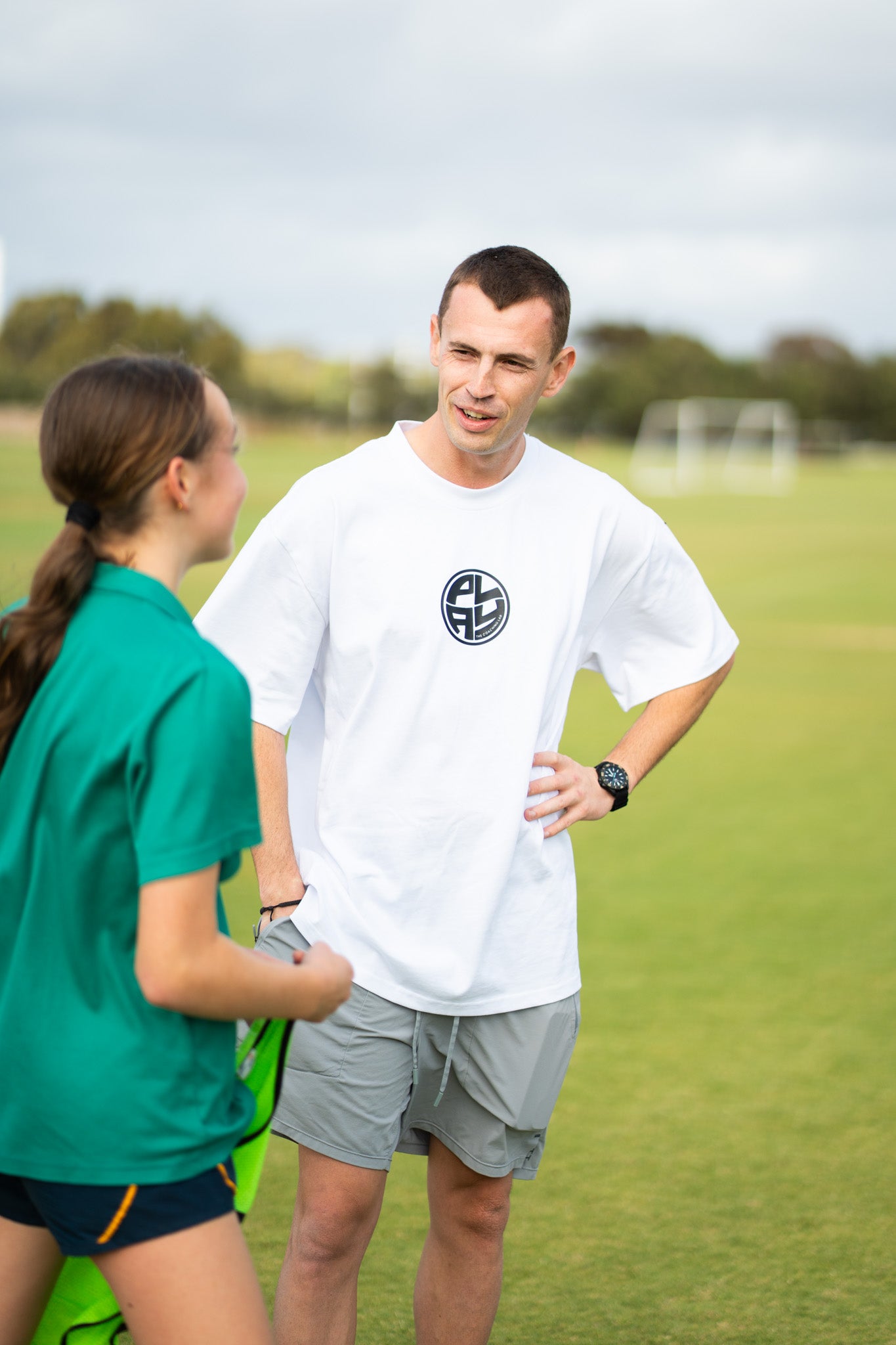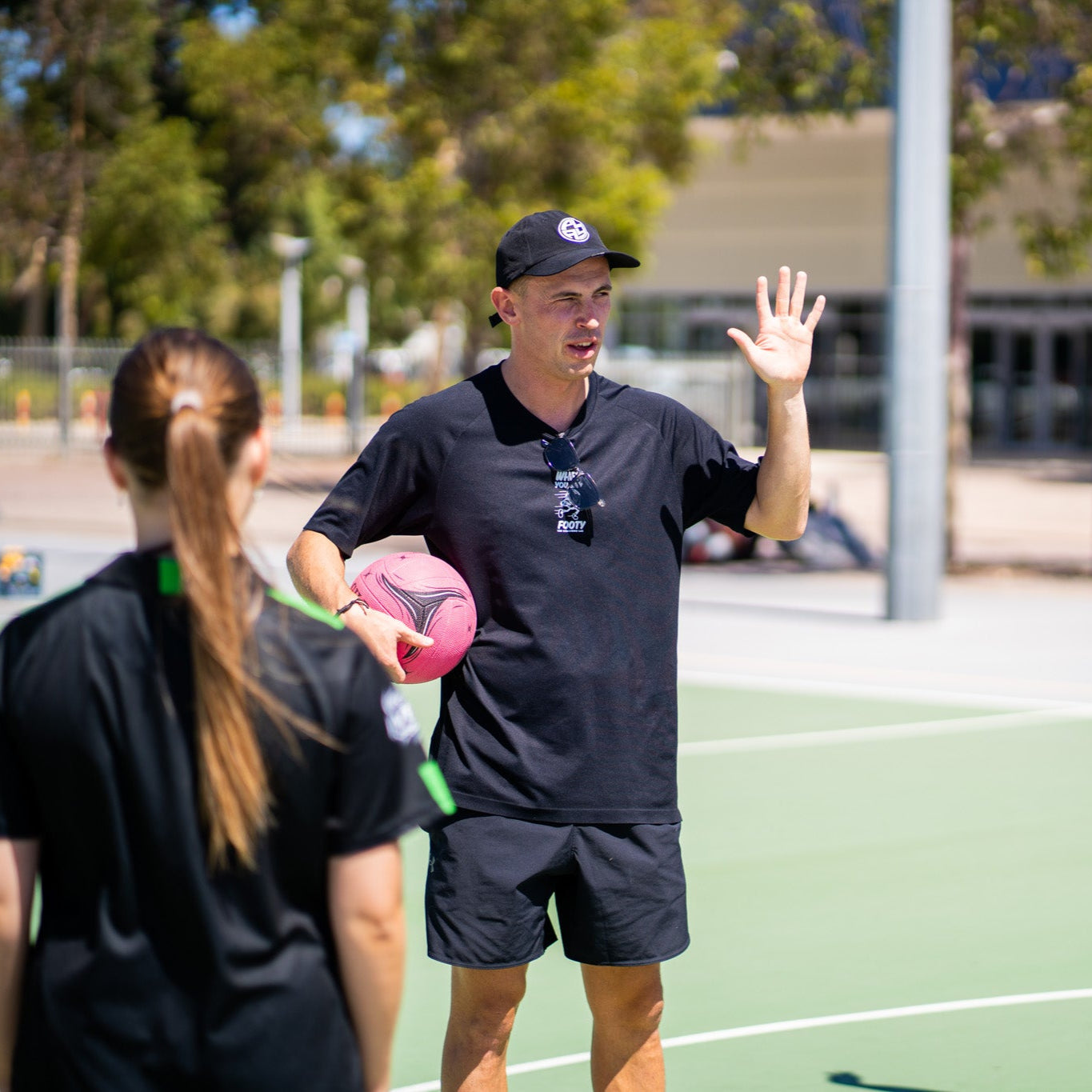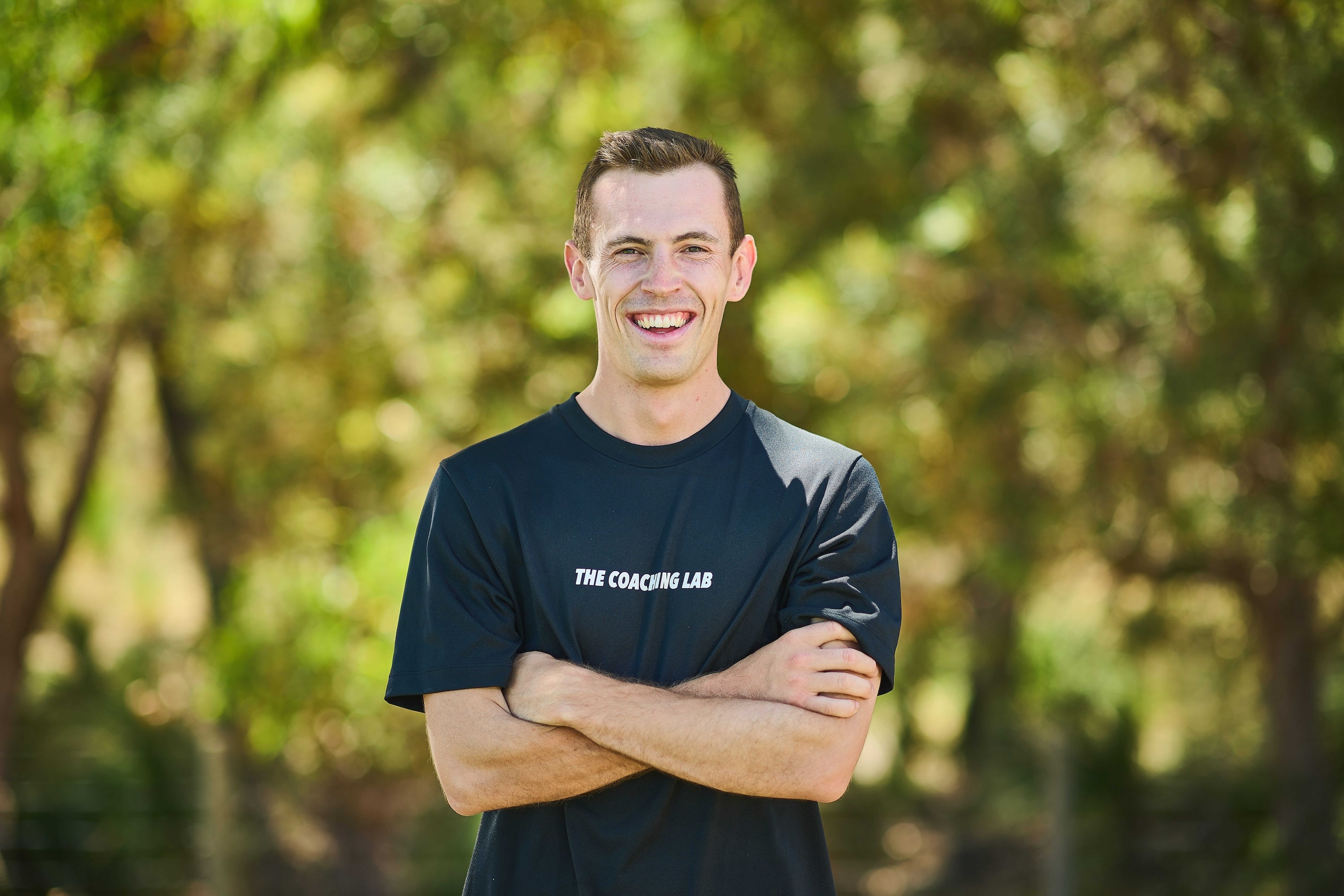A few months ago, I had the opportunity to chat with a senior AFL coach, someone who had spent years at the highest level of the game. I asked him a simple: What are you trying to get better at? His answer stuck with me: Being a better teacher and playing more games. This response resonated deeply, not just because of the simplicity of the answer, but because it highlighted a shift in coaching and teaching—moving from drills and isolated skill work to learning through the game itself.
This philosophy is at the heart of The Coaching Lab’s MatchPlay Cards, a powerful tool for Physical Education teachers and sports coaches who want to engage students, develop understanding, and create a more dynamic learning environment.
Packed with team and player challenges, MatchPlay Cards provide a toolkit for teachers to play more games with purpose. To get better at the game, you need to play it.

Starting Lessons with Games:
Too often, PE lessons (and sessions) begin with long-winded explanations, static warmups, or drills that have 0 connection to the experience or learning theme. what if we flipped tradition and started every lesson with games?
Playing games at the start is the curtain raiser that sets the scenes of the lesson. Use The Coaching Lab MatchPlay Cards instantly and pick out multiple team challenges from the deck to introduce the lesson theme.
There are 100+ challenge cards to explore in the MatchPlay Cards series. It’s as easy as pick them, add them, play them.
Why Start with Games?
- Immediate Engagement: Students are active from the first minute, you don’t wait 30 minutes to do something in a real game do you?
- Contextual Learning: Skills are developed within the game itself because preparing players for a game that doesn't exist doesn't make too much sense. Motivation: Playing is fun, and fun keeps students invested. If you measured this as success, how would you teach differently?
Playing Games with Purpose:
Playing games doesn’t mean pupils are learning. You have to be the problem setter and not the problem solver like tradition says so. I reflect on these questions, what is the game asking players? I watch countless sessions across the world and what players are learning and getting better at.
By embedding learning objectives directly into the game and not just playing a game because students are asking, teachers shift from telling students what to do to guiding them to figure it out. You are creating students to experiment, adapt, and find solutions independently.
- Tactical Understanding: Players learn the game in its fullest.
- Skill Execution: Add team and player challenges with MatchPlay Cards into games to create continuous repetition without repetition of skills.
- Decision-Making: Players are making in-game decisions autonomously and not with direct instruction.

For example, in an AFL lesson, rather than running a separate handballing drill (I think of the building yard when I hear that word!) where players stand 5 steps apart, you could play out a mini-game where
- You have to handball to a teammate on the front line to score
- Add a Footy MatchPlay Card to both teams each with a different passing bonus point system added
- Play one team with an extra player so there is one free player available to handball to at all times.
Remember, what is the game asking players? The Senior AFL coach I spoke to was right—being a better teacher and playing more games is the future of great coaching and teaching. That team might be in with a shout of Finals in September this year. With The Coaching Lab MatchPlay Cards, PE teachers have a powerful tool to bring more purposeful play into their lessons, making learning more engaging, inclusive, and effective.
By starting with games, playing with purpose, and designing challenges that engage all ability levels, we create an environment where students learn by doing, make decisions under pressure, and most importantly, love playing sports.
If you’re serious about playing games and developing pupils' experience of sport, grab a deck of The Coaching Lab MatchPlay Cards here - Teachers. They’re multi-sport and credit card plastic because we know the life of a teacher!
Want me to deliver a session to your staff? Contact me directly at info@thecoachinglab.org





Share:
How to be great junior sports coach
How to support your volunteer coaches